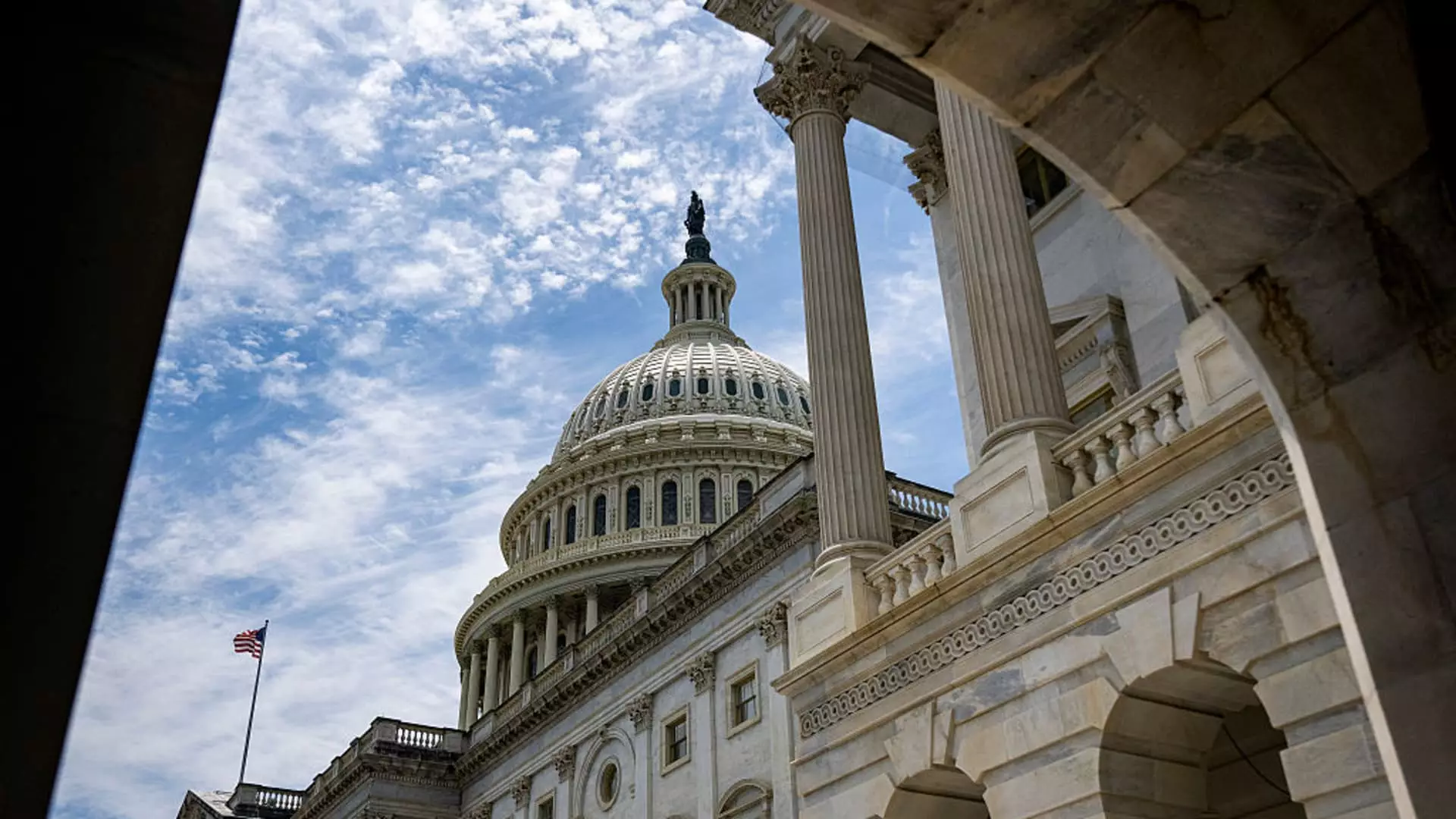The recent legislative push, often hailed by its supporters as a victory for economic growth, reveals a more troubling reality: the system continues to prioritize the wealthy at the expense of the broader population. While headlines tout tax cuts as a means to stimulate the economy, they often mask a deeper, systemic skew in who truly benefits. As we dissect the mechanisms at play, it becomes painfully clear that the core of this legislation reeks of privilege, disproportionately rewarding those who already hold significant assets and power.
Most notably, the legislation’s focus on extending and even cementing the 2017 tax cuts underscores a fundamental bias. Taxpayers earning over a million dollars are projected to enjoy an extra 3% boost in after-tax income—translating into an average increase of $75,000—well above the nation’s average. Such figures crystallize an uncomfortable truth: this bill actively favors the wealthiest, further widening the inequality gap. While average Americans face static or minimal changes in their income, affluent individuals extract additional gains that perpetuate cycles of wealth concentration.
Strategic Loopholes and the Erosion of Fair Play
One of the most troubling aspects of this tax overhaul lies in its manipulation of loopholes that allow the wealthy to sidestep the spirit of tax fairness. The retention and even expansion of workarounds like the pass-through entity tax (PTET) reveals a deliberate complexity designed to benefit select groups. This maneuver enables high-income professionals—lawyers, doctors, accountants—to multiply their deductions, effectively shielding income that should honestly be taxed.
By preserving the $40,000 SALT deduction cap for those earning less than $500,000 and allowing unlimited workarounds, the legislation effectively skewers the tax burden onto middle-income taxpayers and small businesses. These provisions are not accidental oversights but calculated choices that skew the system in favor of a financial elite, empowering them with sophisticated strategies for tax avoidance. It is an undeniable fact: the bill fosters an environment where legal loopholes inflate the disparity between the privileged and the average citizen.
privileging Wealth over Innovation and Small Business
The expansion of the Qualified Small Business Stock (QSBS) program ostensibly aims to stimulate entrepreneurship. However, its real impact lies in enabling the ultra-wealthy to sidestep capital gains taxes on enormous investments, turning the program into a tool for the financial elite rather than a genuine catalyst for economic innovation.
Doubling the asset cap to $75 million and increasing the exclusion threshold to $15 million enriches the wealthy’s capacity to dodge taxes on colossal gains. This policy effectively turns the small business incentive into a goldmine for billionaires eager to protect their enormous fortunes. Such favoritism sends a clear message: entrepreneurship and economic growth are accessible primarily to the already affluent, leaving smaller, more innovative ventures with little chance of meaningful support.
The Erosion of Common Good: Charitable Giving and the Tax Burden
While some provisions ostensibly promote charitable giving, their design subtly discourages high-income donors from contributing generously. By capping the value of charitable deductions at 0.5% of adjusted gross income, the bill forces the wealthiest to face diminishing returns for their contributions, making their donations less financially attractive. Ironically, this could lead to reduced philanthropy among those who could afford to give most, thereby undermining vital social programs dependent on private donations.
For middle-income taxpayers, the bill’s provision allowing charitable deductions alongside the standard deduction might seem a small consolation. Yet the broader picture reveals a legislative preference—shifting fiscal benefits onto the shoulders of the many while coddling the few. It is a reflection of a societal value system that equates wealth with virtue, and fiscal privilege with fairness.
The Stark Reality Behind the Legislation
In essence, this legislative package embodies the worst of neoliberal policies—tax cuts for the rich while nominally addressing middle and lower-income concerns in a superficial manner. The core issue is not just the distribution of tax benefits but the ideological framework that sustains such disparities. It assumes that economic growth is best served when the wealthy are given more, irrespective of the long-term societal costs.
From an ethical perspective, this approach is fundamentally flawed. It circumvents the principles of equality and shared prosperity, instead entrenching a system that rewards the already powerful. For the center-leaning liberal who values fairness but recognizes the importance of pragmatic reform, this bill is a cautionary tale: beware of policies that cloak inequality in the guise of growth and innovation. The path forward requires a critical reassessment—one that ensures the system works for everyone, not just the select few who can manipulate its loopholes.

